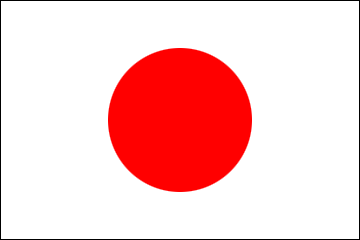23 October 2024: Decision of the Executive Board on the Implementation of the Sendai Framework for Disaster Risk Reduction
2024/10/23
At the 220th session of the UNESCO Executive Board, which was held from October 9 to 23, deliberations were held on the implementation of the Sendai Framework for Disaster Risk Reduction at the request of Japan, and a proposed decision document calling for the strengthening of UNESCO's efforts was adopted.
Next year marks the 10th anniversary of the adoption of SFDRR at the Third United Nations World Conference on Disaster Risk Reduction held in Sendai City in 2015. At the mid-term review of SFDRR held at the United Nations Headquarters in May last year, it was called for strengthening efforts for disaster risk reduction in order to respond to increasingly complex disaster risks.
UNESCO has been promoting efforts in a wide range of fields, including early warning systems for floods, droughts and tsunamis, the continuation of education in the event of a disaster, and the protection of cultural heritage affected by disasters. Japan has contributed to it for many years through Japan Fund in Trust and participation of experts.
Based on the above background, the decision document requests inter-sectoral collaboration within UNESCO and the strengthening of cooperation with other international organizations. It is expected that the UNESCO Secretariat's Disaster Risk Reduction Unit will play a central role in responding to a wide range of disasters with the involvement of various stakeholders and using innovative technologies. From this fiscal year, Japan will support UNESCO to establish a new emergency fund to flexibly dispatch experts with scientific knowledge to prevent secondary disasters in the event of a large-scale disaster, and it is hoped that the implementation impact of this fund will be maximized.
In order to build a society that is resilient to disasters, Japan, which has many lessons learned and scientific knowledge from past disasters, will further strengthen its engagement in this field in cooperation with like-minded countries and the UNESCO Secretariat.
Japan would like to express its gratitude to the co-sponsors and supporters of the decision document.
Next year marks the 10th anniversary of the adoption of SFDRR at the Third United Nations World Conference on Disaster Risk Reduction held in Sendai City in 2015. At the mid-term review of SFDRR held at the United Nations Headquarters in May last year, it was called for strengthening efforts for disaster risk reduction in order to respond to increasingly complex disaster risks.
UNESCO has been promoting efforts in a wide range of fields, including early warning systems for floods, droughts and tsunamis, the continuation of education in the event of a disaster, and the protection of cultural heritage affected by disasters. Japan has contributed to it for many years through Japan Fund in Trust and participation of experts.
Based on the above background, the decision document requests inter-sectoral collaboration within UNESCO and the strengthening of cooperation with other international organizations. It is expected that the UNESCO Secretariat's Disaster Risk Reduction Unit will play a central role in responding to a wide range of disasters with the involvement of various stakeholders and using innovative technologies. From this fiscal year, Japan will support UNESCO to establish a new emergency fund to flexibly dispatch experts with scientific knowledge to prevent secondary disasters in the event of a large-scale disaster, and it is hoped that the implementation impact of this fund will be maximized.
In order to build a society that is resilient to disasters, Japan, which has many lessons learned and scientific knowledge from past disasters, will further strengthen its engagement in this field in cooperation with like-minded countries and the UNESCO Secretariat.
Japan would like to express its gratitude to the co-sponsors and supporters of the decision document.
